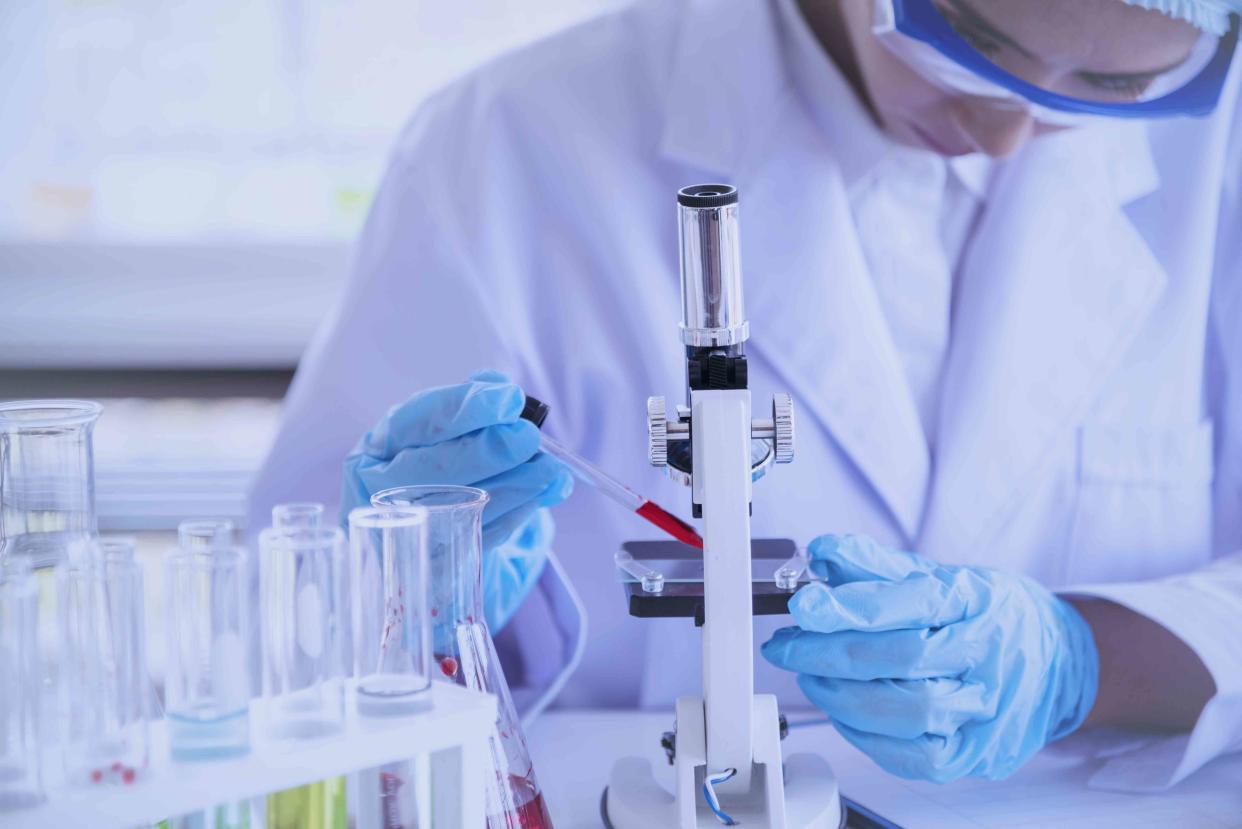What Do Antibodies Do?

howtogoto / Getty Images
Medically reviewed by Amelia MacIntyre, DOMedically reviewed by Amelia MacIntyre, DO
Antibodies are proteins that circulate in the blood and protect against foreign antigenic substances such as bacteria, viruses, fungi, parasites, chemicals, or toxins. They are Y-shaped structures with two light and two heavy protein chains attached. The tip of the antibody consists of a hypervariable region that allows different antibody types to develop, making it possible to bind to a wide range of foreign substances that may make you sick.
The role of antibodies is to support your immune system response by binding to harmful pathogens and helping eliminate them. Antibodies also have several significant clinical applications, including detecting previous infections, supporting passive immunity, treating autoimmune diseases, and aiding in diagnostic approaches.
Types of Antibodies
There are five different types of antibodies, which are known as immunoglobulins. These antibodies differ based on their location and function and include:
IgM: The first antibody produced in response to pathogens. It is pentameric in structure (meaning it has five protein subunits), which makes it easier to bind with the pathogen at the first encounter.
IgG: The most abundant antibody found in the body. It can help to block infections caused by bacteria, viruses, parasites, or other disease-causing organisms. IgG is also the only immunoglobulin that can cross the placenta and protect growing infants for up to six months after birth.
IgA: This immunoglobulin helps protect mucosal surfaces, such as the gastrointestinal (GI) lining in the digestive system or respiratory lining in the lungs, from pathogens. IgA is also present in tears, saliva, breast milk, and mucus.
IgE: This antibody helps mediate allergic reactions in the body. IgE can bind to the surface of mast cells or basophils (types of white blood cells) and trigger hypersensitive reactions in response to allergens.
IgD: This type is found in only small amounts in the body, and its exact function is still unclear. Experts believe IgD acts as a B-cell receptor and may help in B-cell-mediated immune responses.
How Are Antibodies Produced?
Antibodies start to develop as part of the adaptive immune response when B cells recognize pathogens (harmful cells like bacteria and viruses). After coming into contact with a pathogen, B cells form memory B cells and plasma cells. The plasma cells then produce antibodies for the specific pathogen, while memory B cells ensure protection against future attacks from the same pathogen.
For example, if you develop the flu, your memory B cells will remember the virus and understand how to attack it if you get the flu again.
How Do Antibodies Support Immune Health?
Antibodies play a key role in preventing the development of diseases and supporting your immune system response when you get sick. Here's a breakdown of all their various functions:
Block bacteria, viruses, parasites, and fungi by binding to them
Destabilize pathogens before they interact with your body's healthy cells
Help prevent pathogens from replicating and affecting more cells
Activate the complement cascade, a group of proteins that help destroy pathogens and harmful cells
Release pro-inflammatory molecules (like cytokines) that cause inflammation to prevent pathogens from spreading more infection
Clinical Applications of Antibodies
While antibodies play an active role in helping your body fight and eliminate infections and diseases, they also have other clinical applications that can support your overall health. These include the following:
Encourage passive immunity: Passive immunity occurs when immunoglobulins develop in response to an emergency. Certain pathogens (like Clostridium botulinum) can begin to cause serious harm before the body carries out the natural adaptive immune response. In these cases, the passive introduction of antibodies becomes essential for preventing disease progression in a serious or quick-acting illness.
Develop monoclonal antibodies: These antibodies are synthetically produced and help treat various autoimmune disorders (such as lupus or psoriasis) and some types of cancer. Monoclonal antibody treatments can also help prevent severe lower respiratory tract infections caused by respiratory syncytial virus (RSV) in infants and young children.
Determine previous and future infections: Antibodies in your blood may signify a previous infection or immunity to a specific infection that you recently had. Some antibodies can also determine whether you have a risk of developing other illnesses in the future.
Help with diagnoses: Antibodies are often part of diagnostic tests such as immunoelectrophoresis, enzyme-linked immunofluorescent assay (ELISA), and western blot. They can bind to disease-associated proteins in your blood and tissue, transmit signals that signify their presence, and help detect specific diseases.
A Quick Review
Antibodies are proteins that help defend your body from infections and disease by binding to harmful pathogens (like viruses and bacteria) and inactivating them. They play an important role in your immune system response when you get sick.
There are five subtypes of antibodies, all of which serve slightly different functions but ultimately support the same goal: fighting illnesses to help you improve your symptoms and overall well-being.
For more Health.com news, make sure to sign up for our newsletter!
Read the original article on Health.com.
